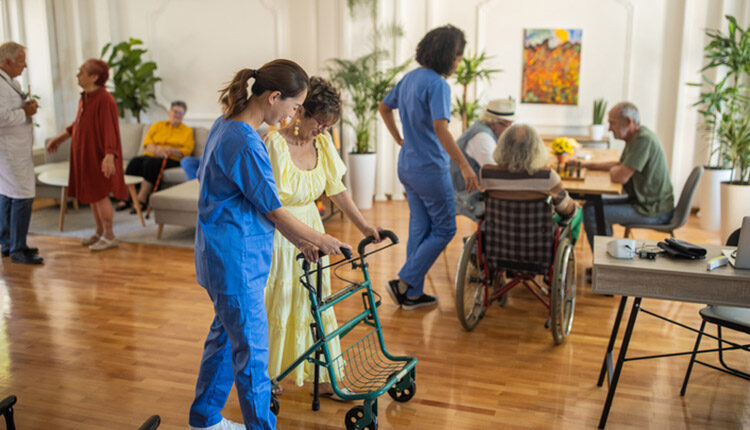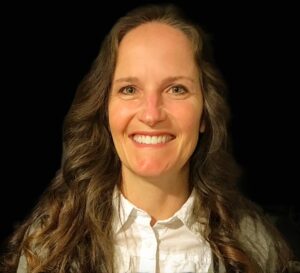 miodrag ignjatovic / E+
miodrag ignjatovic / E+
Broadening the Knowledge Base
Research conducted by Deborah H. Dowd, RDH, MSDH, provides important clues on how to support the oral health of a highly vulnerable population—older adults residing in assisted living facilities.

As a practicing clinician and educator, Deborah H. Dowd, RDH, MSDH, has a wealth of experience as a dental hygienist. Currently, she is an adjunct instructor at Fortis College and Utah Valley University in Salt Lake City. While earning her Master of Science in Dental Hygiene at Idaho State University, Dowd embarked on a research project focused on the oral health of older adults living in assisted living facilities. Her interest in this important subject has remained piqued. She shared her thoughts on her career and research with Sunstar Ebrief.
1. You returned to school to earn a master’s degree. What inspired this decision and what do you hope to do with the degree?
I was inspired to return to school and earn a master’s degree after being an educator as an adjunct instructor at Utah Valley University for a few years and working as a clinician for 20 years in private practice. I found that I really loved teaching and being a part of the students’ educational journey. I realized the impact I could have in sharing my knowledge and skills in the development of future dental hygienists. I found myself becoming energized in sharing my passion for dental hygiene by inspiring and empowering students to improve and fulfill their dreams. I realized that furthering my education was what I needed to gain the knowledge and improve my abilities to progress as an educator. I plan to continue build upon the foundation that I developed through my personal educational experience. With my master’s degree, I hope to continue to strive to be an effective dental hygiene educator in any capacity where I can continue to inspire and make a difference for someone.
2. What ignited your passion for lifelong learning and how does this impact your clinical practice and teaching?
My passion for lifelong learning was ignited by my students and the continual changes in the profession. My students are so intelligent, and it is important to stay current and able to meet the students’ needs. As new evidence-based research comes out for either educational strategies or clinical practice, it is critical to have the knowledge and ability to apply what is being learned. The roles and responsibilities of an educator are to maintain a high level of commitment both personally and professionally, so lifelong learning is essential.
3. You have conducted research on oral health assessments among residents of assisted living facilities. Why is this population at such high risk for poor oral health?
Oral health is an integral part of overall health. Older adults are one of the most underserved populations and they are also at risk for poor oral health. Older adults frequently have complex medical histories with multiple health conditions that require various medications. Side effects from those medications reduce saliva flow, causing dry mouth and xerostomia which increase the risk for dental caries and periodontal diseases. Current research shows a systemic connection between many chronic diseases and periodontal diseases. Older adults also have complex dental prostheses and restorations that require different care needs. Furthermore, residents of assisted living facilities often have difficulty with oral self-care due to functional decline of hand dexterity and cognitive function. Many residents who need assistance are not receiving it, making it difficult to maintain good oral health. Many of the oral health conditions these individuals experience affect their quality of life and their total health.
4. What strategies would you suggest to help improve the oral health of this vulnerable population?
Strategies that could help improve the oral health of this vulnerable population include implementation of oral health assessments and programs focused on maintaining or improving oral health within assisted living care facilities. Interprofessional collaboration with oral health professionals and care staff is needed to provide comprehensive assessments and oral health care. Collaborative education efforts in oral health are key to improving the health of this population. This includes using teledentistry, and collaborating with dentists, dental hygienists, nurses, certified nursing assistants, and physicians. The use of teledentistry allows real time checks and coordinates basic care needs daily oral care needs with advanced oral needs. Oral health needs to be considered an integral part of the patient’s quality of life.
5. What changes do you believe are in store for the dental hygiene profession within the next 10 to 20 years?
New technologies will be vital in improving diagnosis and management of treatment needs. Technologies can provide for great economies of scale. Real time data sets can be observed and coordinated with the interprofessional teams. Another hope would be for future legislative involvement and changes for the dental hygiene profession allowing more opportunities to work collaboratively, receive reimbursement, and provide access to care for this vulnerable population.

